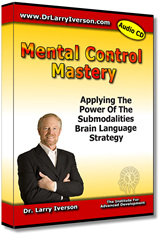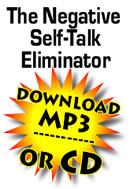Do You Play The Blame Game?
(continued from last week…)
Break Free of the Blame Game
Relationship tip number ten is an expansion of something I mentioned a moment ago. It is break free of the blame game. We need to use “I” statements instead of “You” statements. One of the most common causes of disagreement is blaming others or the situation for how we feel instead of taking responsibility.
When you point fingers at someone else, when you point fingers at the situation, it causes emotions to rise up that may or may not be very helpful.
We need to remember it’s not the situation, it’s not the other person’s words, it is not the other person’s actions that have caused our anger or our pain, it is our own thinking. It is what that meant to us. It’s the way we judged it. It’s the way we choose to look at it from our own perspective. It’s the things we think about what they said or did or the action they took and it’s our evaluation of it that is upsetting to us or calming, not what they actually did.
Have you ever felt like there’s some unknown block stopping you from getting what you really want?
Learn more…
If you have attended programs of mine, you may have heard me say there are only four ways all emotions are created. 1. Chemical or hormonal change in the body, 2. Damage to the brain itself, 3. Your thinking patterns or 4. Something happening to your physiology – you’re too hot, too cold, injured, etc. Of those four possibilities between 65% to 75% of all emotions are created by your thinking patterns.
Playing the blame game, “You did _______ (yelled, whined, cursed, ignored me, etc.), and I feel ______ (scared, guilty, mad, afraid, etc.) because of that.” is not correct, nor is it true!
You don’t feel what you feel because of what they did. You feel what you feel because of what you think about what they did. Unless of course they can chemically imbalance you, or they brain damaged you, or they twist you up in a pretzel and shove you in a box for hours. It is not the situation. People cannot cause emotions to rise up within us.
They can say things that can be triggers. They can behave in ways that are kind or unkind, helpful or unhelpful, assertive or passive, hostile or supportive, etc. But ultimately you feel how you feel because of what you’re thinking about the situation, not because of the situation itself.
Sometimes it is really tough to not point fingers, but making “I” statements – “I feel this way about ________.” or “I am thinking that at this time we need to do X”, is a better, stronger perspective. You’re not pointing fingers. You’re not making judgments. You’re not demanding. You’re standing and expressing what you see, think and feel. That anger, that hurt, that frustration is yours not theirs.
If you were a very patient person, if you weren’t stressed, if they weren’t late, if they had a different look on their face, you may respond in a different way. But ultimately it comes back to you. You need to take care of you. You don’t need to point a finger at them.
We need to learn to recognize the internal causes of our emotions and accept responsibility for them. Stop pointing fingers at others for what happens. We need to retrain our blame patterns and use “I” instead of “them”.
An “I” statement is owning what’s going on with you. You may express your feelings about something they’ve done, but you own it. Instead of “You made me mad,” “I feel irritated because of this.” Instead of “You’re always late” maybe say “And when you show up late I feel this way.” Or “You always leave a mess.” Instead of that, maybe “I get tired of picking up after you. It’s not really my job.”
We need to think about making “I” statements about what we’re feeling. Even if our feeling is triggered by them, it’s still our feeling and they didn’t make our feelings happen. We can talk about that. We can say “I see this and I don’t really care for it.” You don’t need to say “You’re bad because of it.”
Finger pointing, blaming, “You” statements cause defensiveness and cause conflict. No one but you is responsible for how you feel! Other events can trigger, but your emotions are your responsibility and are created by you. Take back control of your mind.
(to be continued…)
![]()
Order this article as an AudioBook!
Has this program caught your interest? You can purchase and immediately download this entire 14-part program! It includes a full-length AudioBook file as well as a complete PDF transcript!
Get all 14 segments of this program right now!
Order Now: Communication Essentials – Only $9.95
 Mental Control Mastery
Mental Control Mastery How would you like to have more control over your life? Using the Mental Control Mastery submodalities system you go straight to the source of your inner power. You learn to use “Brain Language” to design the life you want. If you had to do battle with somebody who’s bigger, faster and meaner than you—what would you want? Of course you’d want somebody on your side who’s tougher than the bad guy. Mental Control Mastery is in your corner, and definitely able to win the battle. This amazing process is the secret within the success of the most powerful, persuasive, wealthy and charismatic figures from today and throughout history. And you will discover the secret and be able to start using this yourself.

Posted: July 13th, 2022 under Audio Programs.
Tags: blame, break free, curse, demanding, feelings internal causes, Frustration, making judgements, perspective, pointing fingers, responsibility, self control, trigger emotions, whine






